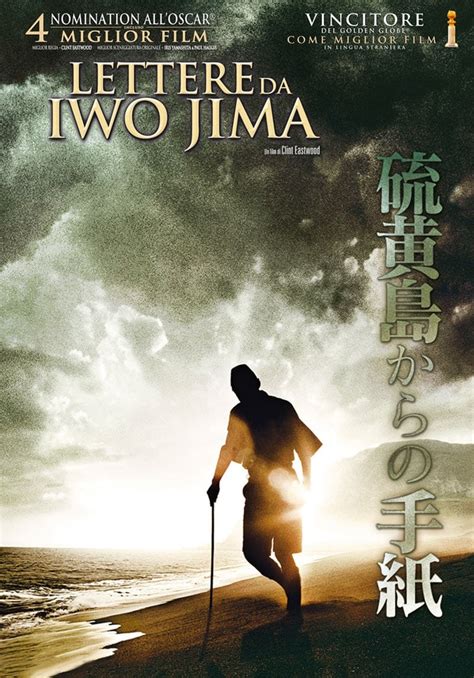Letters from Iwo Jima

Description:
Letters from Iwo Jima is a 2006 war film directed by Clint Eastwood. It portrays the Battle of Iwo Jima from the perspective of Japanese soldiers, particularly focusing on the experiences of General Tadamichi Kuribayashi. The film explores themes of honor, duty, and the human cost of war.Keywords:
War, Perspective, Sacrifice, Humanity, HonorIs Letters from Iwo Jima a true story?
Yes, "Letters from Iwo Jima" is based on true events. The film, directed by Clint Eastwood, portrays the Battle of Iwo Jima during World War II from the perspective of Japanese soldiers. It is inspired by letters written by Japanese General Tadamichi Kuribayashi and other soldiers, highlighting their experiences, struggles, and thoughts during the battle. The film complements Eastwood's earlier work, "Flags of Our Fathers," which depicts the American perspective of the same battle.
Is Letters from Iwo Jima worth watching?
"Letters from Iwo Jima," directed by Clint Eastwood, is highly regarded for its poignant portrayal of the Battle of Iwo Jima from the Japanese perspective. The film is notable for its emotional depth, strong performances, particularly by Ken Watanabe, and its exploration of themes like honor, sacrifice, and the human cost of war. It complements Eastwood's other film, "Flags of Our Fathers," offering a balanced view of this pivotal conflict. If you're interested in war films that emphasize character and humanity over action, it's definitely worth watching.
What streaming service has Letters from Iwo Jima?
As of my last update, "Letters from Iwo Jima" is available for streaming on HBO Max. However, availability can vary by region and over time, so it's a good idea to check the current listings on your preferred streaming services or use a service like JustWatch to find the most up-to-date streaming options.
What is the message of Letters from Iwo Jima?
"Letters from Iwo Jima" conveys the human cost of war, focusing on the perspectives of Japanese soldiers during the Battle of Iwo Jima in World War II. It highlights themes of honor, sacrifice, and the universal experience of fear and loss. Through the personal letters of General Tadamichi Kuribayashi, the film emphasizes the futility of war and the shared humanity of both enemies. It seeks to foster empathy by portraying soldiers not just as combatants, but as individuals with hopes, dreams, and families, ultimately questioning the nature of duty and loyalty.
Explore More Categories: